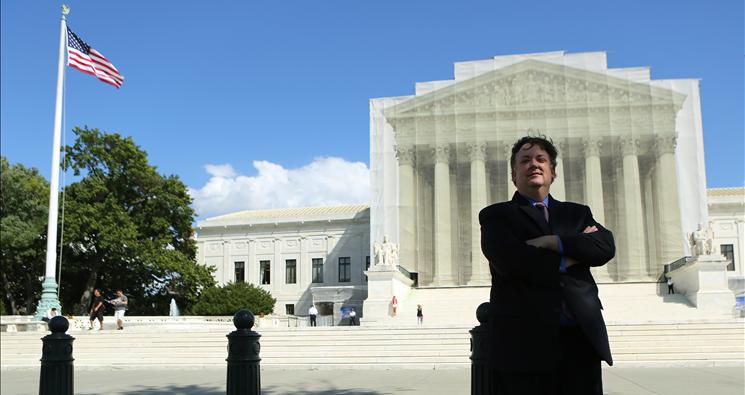Beholden for Money but Not for In-Kind Support?
Tuesday morning the Supreme Court heard oral argument in McCutcheon v. FEC, the latest in a series of First Amendment challenges to various campaign regulations. At issue are federal limits on the total ("aggregate") amount a person can contribute, not to a particular candidate or PAC (political action committee), but to all candidates and PACs combined.
The basic free speech principle behind the challenge is straightforward: to regulate money given in support of a campaign is just as much a restriction on speech as to regulate money given in support of a billboard, or the purchase of literature, or the placement of a message ad in a newspaper.
The standard defense of political contribution limits, on the other hand, is that it is not good for a candidate to feel beholden to, or give special access to, someone just because that person donated a lot of money. That concern certainly has surface appeal. The problem is that concentrating on donations of money is way, way too narrow. Candidates are just as likely to feel beholden to (1) a third-party organization, like Planned Parenthood or the National Rifle Association, that spends big bucks on ads, literature, etc. to support their candidacy; (2) a major media enterprise (the New York Times, a TV network, etc.) that supplies invaluable aid by endorsing them or providing flattering coverage; (3) a membership group (unions, for example) that provides thousands of on-the-ground troops to assist the campaign; (4) celebrity endorsements that translate into massively heightened public prominence for the candidate; or (4) key political patrons/kingmakers who promote the candidate or dissuade potential competitors from running. Getting such support for "free" -- or rather, with an implicit expectation of support for the provider's political positions -- is not that different from getting cash, and in some cases may be considerably more valuable.
Are the supporters of campaign finance limits willing to clamp down on media endorsements or fawning coverage? What about groups providing manpower support or independent ad buys? Celebrity endorsements? Promotion of political protégés? Most likely not: such support is plainly constitutionally protected, not to mention a standard part of representative democracy.
To focus on the influence of individuals who donate money (something most all of us can do), while ignoring the influence of individuals who run the media, direct interest groups, control armies of employees, command popular attention, or call the shots in the backrooms of politics (things which very few of us do), is to tilt the playing field in favor of a select group of power brokers. And to say that the First Amendment protects the efforts of everyone but the donor to support (and thus gain the gratitude of) a politician is positively odd. Better to acknowledge that the First Amendment protects them all.
